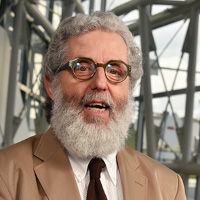
ESPRI Mission
ESPRI Board

John is currently Chief Research Officer for the Water Research Foundation. John joined the Water Research Foundation in January 2005. Prior to joining the Water Research Foundation, John worked as a research associate focusing on on-site wastewater systems and bacterial source tracking. He holds an M.S. degree from the Colorado School of Mines, a Masters of Public Administration from University of Colorado Denver, and a B.A. in biology from Saint Anselm College, Manchester.
John is originally from Fort Kent Maine, (Northern Terminus of Route 1). His hobbies include trying his best to keep up with his wife, Lynne, on telemark skis, watching his 9 year old, Ana, tear down black diamond slopes and running after his 6 year old, Elise, shredding her scooter.

Tim has been an ESPRI research engineer since ESPRI's inception and is ESPRI's board president. He envisions ESPRI as a meeting ground for all building water system stakeholders to advance research, policy and practice. Since 1997 Tim's professional focus has been drinking water and wastewater processes and public health protection, first in support of relief and development efforts in Rwanda and Northern Macedonia (during the Kosovo conflict) and, since earning his doctoral degree, in support of public water systems and regulatory agencies in the United States. Tim holds a doctoral degree in environmental engineering from Drexel University, a masters degree in civil engineering from Ohio University, a masters degree in mechanical engineering from the University of Tennessee, Knoxville, and a bachelor's degree in aerospace engineering from the University of Notre Dame. Tim served as a Peace Corps volunteer in Cameroon (1983-1985) and maintains an interest in improving safe water and sanitation access in less technologically developed countries and conflict-impacted regions.

Mr. Connell has more than 30 years of experience as an environment scientist, with a focus on the water sector. In support of Environmental Protection Agency (EPA) water monitoring programs, Mr. Connell led the development and implementation of more than a dozen new environmental laboratory contaminant collection, detection, and quantitation methods, and the design and implementation of new water monitoring laboratory programs to support these methods and designed and managed national environmental data collection programs. He is best known in the environmental microbiology community for spearheading the movement in the U.S. toward quantitative, performance-based laboratory methods for water and wastewater pathogen monitoring, which has become a best practice for microbial measurement methods. In support of the EPA Water Security Division, Mr. Connell led initiatives to improve preparedness and response to water contamination incidents, water and wastewater infrastructure decontamination, and water sector climate change impact mitigation and resiliency. Mr. Connell currently serves as the Vice President of GDIT’s Science & Engineering Business Area, a portfolio of programs supporting government agencies with scientific missions and engineering scope. He holds an MS in Environmental Science from the Johns Hopkins University and a BS in Biology and a BA in English from Virginia Tech.

Dr. Frey has over 30 years of experience in the water and environmental services industry. She is a nationally-recognized expert in water quality, systems modeling, operations, regulatory analysis, compliance assessments, and innovative technology, including treatment, real-time monitoring, and data mining. Dr. Frey led several national work groups that provided technical review, analysis, and advice to the U.S. Environmental Protection Agency (USEPA) in the development of numerous drinking water policy initiatives, including various renderings of the Surface Water Treatment Rule, Disinfectants and Disinfection By-Products Rule and the Lead and Copper Rule. She has been a leading researcher in sampling design, microbial inactivation and control measures, corrosion mechanisms and control, and overall water quality management for drinking water systems. Dr. Frey has also co-founded multiple businesses and is well-versed in business leadership. She is a member of advisory boards to a number of innovative technology and sustainability-focused companies and initiatives within the water and environmental communities.

Professor Charles Haas, Drexel's L.D. Betz chair of environmental engineering since 1991. Over his career he has studied the treatment of water, especially wastewater, to minimize human exposure to pathogenic microorganisms and other contaminants. Through his systematic study of pathogen processes and management, he and his colleagues pioneered the field of quantitative microbial risk assessment (QMRA) and he continues to advance QMRA through his research and active participation as a Society for Risk Analysis fellow. Professor Haas has been recognized for his work by the American Water Works Association, National Water Research Institute and the International Water Association, among other leading organizations. Recently, prof. Haas has been an active participant in research and policy studies on Legionnaire's disease and building water systems, including service as a panelist in the National Academies of Science, Engineering and Medicine (NASEM) panel that produced the 2020 report "Management of Legionella in Water Systems."

Alan is currently the Executive Director of the Association of State Drinking water Administrators (ASDWA) and serves on the board of the Fairfax County Water Authority. As ASDWA chief executive, Alan is responsible for the organization's day-to-day activities; works with the ASDWA Board of Directors to determine the association's focus and direction; develops and recommends policies and approaches to the Board for approval; and is responsible for their implementation. He serves as a spokesperson for, and represents, ASDWA in Washington, DC. Alan was formerly director of federal operations at the American Water Works Association for 26 years.
ESPRI Principal Staff
Research Scientist

ESPRI - The Environmental Science, Policy and Research Institute - is a not-for-profit organization dedicated
to public health protection, water conservation and energy conservation.
Our specialty is water quality and our
focus is building water systems.
Contact us at [email protected]
Last page update 26 Aug 2021

